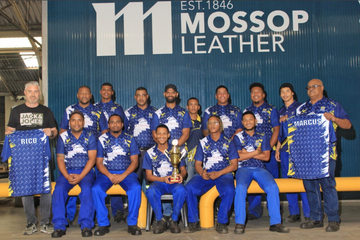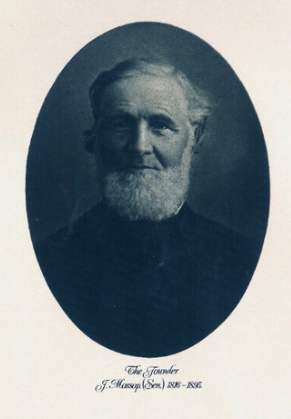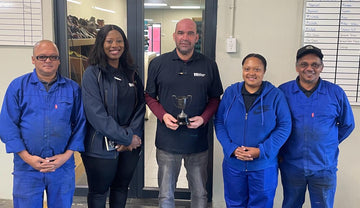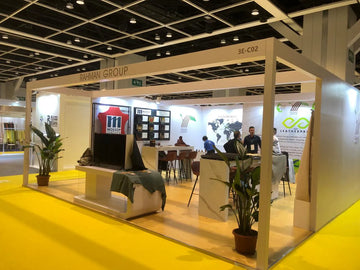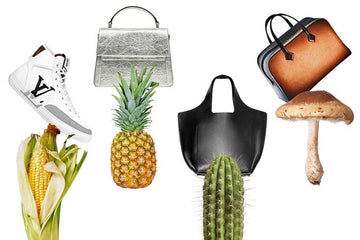
On a lazy weekend in the peaceful suburbs of Newlands, what began as a casual lunch with friends turned into an unexpected revelation about perceptions surrounding meat, leather, and their environmental impact. Amidst the clinking of cutlery and the hum of friendly chatter, I found myself drawn into a spirited debate taking place nearby.
A group of university students, energized by youthful conviction, were deep in discussion about veganism. One person stood out, animatedly sharing a recent decision to adopt the lifestyle. The reasons—animal welfare, environmental sustainability, and personal health—were articulated with such fervor that it was hard not to listen. But then, a sweeping dismissal of leather as "unsustainable" caught my attention.
These words stirred memories of a business encounter I had years ago. A potential client, fully aware that our leather was tanned from animal hides, asked a pointed question: “Do you have any animal-free leather?” Their preference for synthetic alternatives had overshadowed the merits of our product before we even began. At the time, the rejection stung, not unlike rugby pundits doubting Cheslin Kolbe's potential as a professional player. Their critique of his size seemed insurmountable, yet years later, Kolbe would prove them all wrong, becoming a double World Cup champion and one of the finest players on the planet.
The parallel struck me: how can something be criticized for what it inherently is—its DNA, its fingerprint? Leather is not "animal-free" because it is a natural product, intrinsically tied to the agricultural process.
Reflecting further, I realized how marketing had shaped perceptions. From historical alternatives like Presstoff to modern synthetics like PVC and PU, the branding of “vegan leather” had masterfully positioned these materials as sustainable and ethical. Yet the truth, often obscured, is that leather itself is a by-product of the meat industry—a material that, when responsibly sourced, is both durable and biodegradable.
This sentiment was echoed at a recent seminar I attended, where speakers emphasized the role of leather in sustainable agriculture. Regenerative farming practices, they explained, not only promote soil health but also produce hides that can be transformed into leather. Far from being wasteful, these systems demonstrate how livestock can support both food and material production in a balanced, symbiotic way.
The challenge, I realized, lies in education. Misconceptions have clouded leather’s role in the broader sustainability conversation, diverting attention to synthetic materials that often carry their own environmental baggage. Rather than vilify livestock farming, the focus should shift to promoting responsible, regenerative practices. For the leather industry, the key may be as simple as reframing the conversation—changing the tagline, so to speak.
Listening to the university students’ debate, I recognized the urgency of dispelling myths and championing factual narratives. The future of leather depends on informing consumers, not just those in higher income brackets but across all socioeconomic groups, about the interconnectedness of food and material choices.
That lunchtime conversation became a microcosm of the challenges facing our industry. In a world driven by instant gratification and buzzwords, we need our "aha moment"—a compelling way to market leather's inherent sustainability in this evolving landscape.
For me, the solution lies in transparency, education, and collaboration. By addressing misconceptions and promoting a truthful narrative, we can uphold the value of leather—not as a relic of the past, but as a cornerstone of a sustainable future. And that journey begins with conversations like these, where minds can change, and truths can emerge.
A group of university students, energized by youthful conviction, were deep in discussion about veganism. One person stood out, animatedly sharing a recent decision to adopt the lifestyle. The reasons—animal welfare, environmental sustainability, and personal health—were articulated with such fervor that it was hard not to listen. But then, a sweeping dismissal of leather as "unsustainable" caught my attention.
These words stirred memories of a business encounter I had years ago. A potential client, fully aware that our leather was tanned from animal hides, asked a pointed question: “Do you have any animal-free leather?” Their preference for synthetic alternatives had overshadowed the merits of our product before we even began. At the time, the rejection stung, not unlike rugby pundits doubting Cheslin Kolbe's potential as a professional player. Their critique of his size seemed insurmountable, yet years later, Kolbe would prove them all wrong, becoming a double World Cup champion and one of the finest players on the planet.
The parallel struck me: how can something be criticized for what it inherently is—its DNA, its fingerprint? Leather is not "animal-free" because it is a natural product, intrinsically tied to the agricultural process.
Reflecting further, I realized how marketing had shaped perceptions. From historical alternatives like Presstoff to modern synthetics like PVC and PU, the branding of “vegan leather” had masterfully positioned these materials as sustainable and ethical. Yet the truth, often obscured, is that leather itself is a by-product of the meat industry—a material that, when responsibly sourced, is both durable and biodegradable.
This sentiment was echoed at a recent seminar I attended, where speakers emphasized the role of leather in sustainable agriculture. Regenerative farming practices, they explained, not only promote soil health but also produce hides that can be transformed into leather. Far from being wasteful, these systems demonstrate how livestock can support both food and material production in a balanced, symbiotic way.
The challenge, I realized, lies in education. Misconceptions have clouded leather’s role in the broader sustainability conversation, diverting attention to synthetic materials that often carry their own environmental baggage. Rather than vilify livestock farming, the focus should shift to promoting responsible, regenerative practices. For the leather industry, the key may be as simple as reframing the conversation—changing the tagline, so to speak.
Listening to the university students’ debate, I recognized the urgency of dispelling myths and championing factual narratives. The future of leather depends on informing consumers, not just those in higher income brackets but across all socioeconomic groups, about the interconnectedness of food and material choices.
That lunchtime conversation became a microcosm of the challenges facing our industry. In a world driven by instant gratification and buzzwords, we need our "aha moment"—a compelling way to market leather's inherent sustainability in this evolving landscape.
For me, the solution lies in transparency, education, and collaboration. By addressing misconceptions and promoting a truthful narrative, we can uphold the value of leather—not as a relic of the past, but as a cornerstone of a sustainable future. And that journey begins with conversations like these, where minds can change, and truths can emerge.

Tags:

